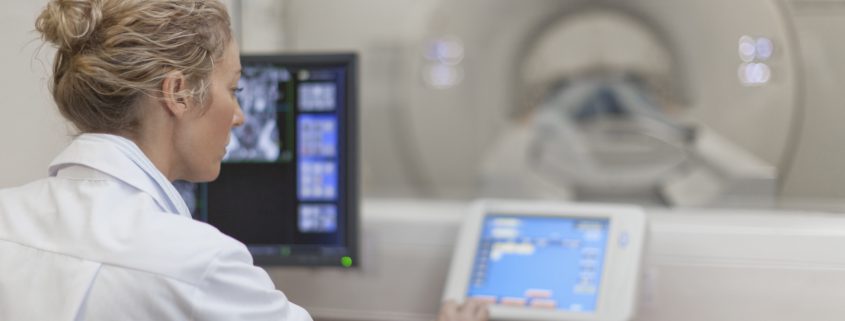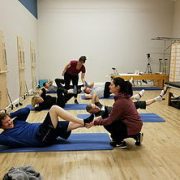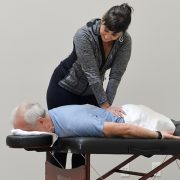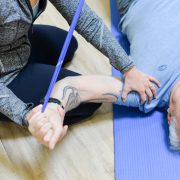How Back MRI’s Lead to more Invasive Treatments and Surgery
If you’ve ever suffered from acute or long-standing back pain, you’ve likely wanted to “see inside” and know what’s going on. If this is you – you’re not alone in your thinking – and many medical doctors agree with this approach. However, evidence suggests that unwarranted MRI’s on your back can lead to unnecessary invasive treatments and surgeries, which often result in more harm than good in the long-term.
Let’s take a look at the research.
As part of their International Choose Wisely Campaign, the BMJ (British Journal of Medicine) published findings of a 2020 study that investigated what happens when back pain sufferers get MRI’s done too early (defined as less than 6 weeks into an episode and absent of any red flags). In more than 400,000 patients, those who received early MRI’s on their back were more likely to undergo back surgery and be prescribed opioids. And worse – they had higher pain scores at 1-year follow-up than those that didn’t get an MRI. This is not an isolated study. There is mounting evidence that indicates when MRI’s are done too early or unnecessarily – it leads to more surgery, more invasive treatments, more negative perceptions and catastrophization of spinal conditions, and overall – poorer outcomes.
So when is a back MRI needed?
When you’ve got any alarming symptoms (known as “red flags”) you should absolutely get an MRI. These include signs of cancer, infection, inflammatory disease, possibility of fracture, or severe neurological deficit. Qualified health care practitioners are trained to identify these red flags. However, they are seen in only about 5-10% of all back pain cases. For context, in my two decades of treating patients with back pain, only three had these serious symptoms. This isn’t to downplay severe back pain cases, but to emphasize that most back pain patients don’t need an MRI for a proper diagnosis and treatment plan. And if you get an MRI when you don’t need one – you might end up with unnecessary treatments or surgeries, be prescribed opioids, and are likely to feel generally worse about your back pain.
The problem with relying on back MRI’s
When you get an MRI of your back – the problem is it shows you everything.
You’ll see a comprehensive view of bulging discs, arthritis, stenosis, and degenerative discs – which are all common findings – but also a normal part of aging. Everybody gets them whether you have back pain or not. But because we haven’t done a good enough job of normalizing these findings – they often get blamed for your back pain when seen on an MRI. But the research shows you can’t reliably correlate your MRI findings to the true cause of your back pain. In fact, they’ve compared MRI’s of people with and without back pain and found they can share almost identical results. In a set of publications known as the Lancet series, Martin Underwood, MD, co-author and professor at Warwick Medical School, said: “If you get into the business of treating disc degeneration because it has shown up on an MRI, the likelihood is that, in most of those people, it is not contributing to their back pain.”
Confused? I don’t blame you.
The truth is, about 70-80% of all back problems, even sciatica, are considered what we call “mechanical” in nature. Your pain will come and go, you’ll have good days and bad days, and you’ll often feel better with movement. Mechanical back pain cannot be diagnosed by an MRI – it’s diagnosed via repeated movement testing to see what triggers and relieves your back pain. And it’s treated with corrective movement strategies designed to get rid of your pain and keep it gone. If you undergo an MRI for what’s essentially mechanical pain, you risk receiving treatments that are not only unnecessary, but can exacerbate the problem. Remember, you can’t reverse a back surgery. And complications related to back surgery are complicated to treat. You owe it to yourself to exhaust all possible conservative treatments.
If you’ve been suffering with back pain for years, I know it’s frustrating.
Consider speaking to a mechanical back pain expert who can help you accurately determine the root cause of your back pain with corrective movement strategies instead of a back MRI.
Give yourself a chance to resolve your back pain naturally instead of resorting to invasive treatments or procedures.
Dr. Carrie Jose, Physical Therapist and Pilates expert, owns CJ Physical Therapy & Pilates in Portsmouth and writes for Seacoast Media group. To get in touch, or request a seat in her upcoming Masterclass for Back Pain & Sciatica – visit her website www.cjphysicaltherapy.com or call 603-605-0402










